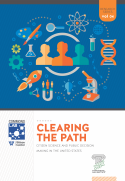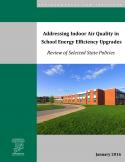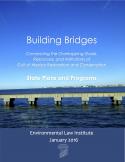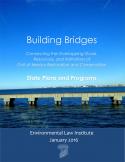
Research Reports
ELI publishes Research Reports available for free download that present the analysis and conclusions of the policy studies ELI undertakes to improve environmental law and policy. These reports contribute to education of the profession and disseminate diverse points of view and opinions to stimulate a robust and creative exchange of ideas. Those publications, which express opinions of the authors and not necessarily those of the Institute, its Board of Directors, or funding organizations, exemplify ELI’s commitment to dialogue with all sectors.
Bermuda's nearshore marine environment is a critical economic, environmental, and social resource for the Bermudian people. Bermuda can more effectively manage the uses of its marine environment by undertaking marine spatial planning (MSP) for its nearshore waters. MSP is a public process that organizes human activity in marine areas in time and space to meet environmental, economic, and social objectives.
Read More >
This report was prepared by the Environmental Law Institute (ELI) with the Commons Lab at the Woodrow Wilson International Center for Scholars. It examines laws and policies that affect public decision makers’ ability to use and rely on information generated by citizen science projects. The report addresses how citizen science programs can be organized, conducted, and communicated to improve public decisions.
Read More >
Energy efficiency retrofits can both conserve energy and improve indoor air quality. Early and ongoing consideration of IAQ issues during school energy upgrades is important for avoiding unintended, negative indoor environmental consequences and reaping the twin benefits of energy savings and a healthier, more productive school environment.
Read More >
In an effort to link the spill-related processes with the existing framework, we released a report in April 2014 entitled “Building Bridges: Connecting the Overlapping Goals, Resources, and Institutions of Gulf of Mexico Restoration and Conservation (Federal Programs).” That report addressed opportunities to link existing federal programs with the processes initiated in response to the spill, identifying dozens of existing federal programs with goals and objectives that overlap with the oil spill restoration processes.
Read More >
In this report, we focus on Gulf of Mexico state plans (including regional plans) and state programs. As oil spill restoration efforts move forward, these plans and programs may be important to consider for a number of reasons.
Read More >